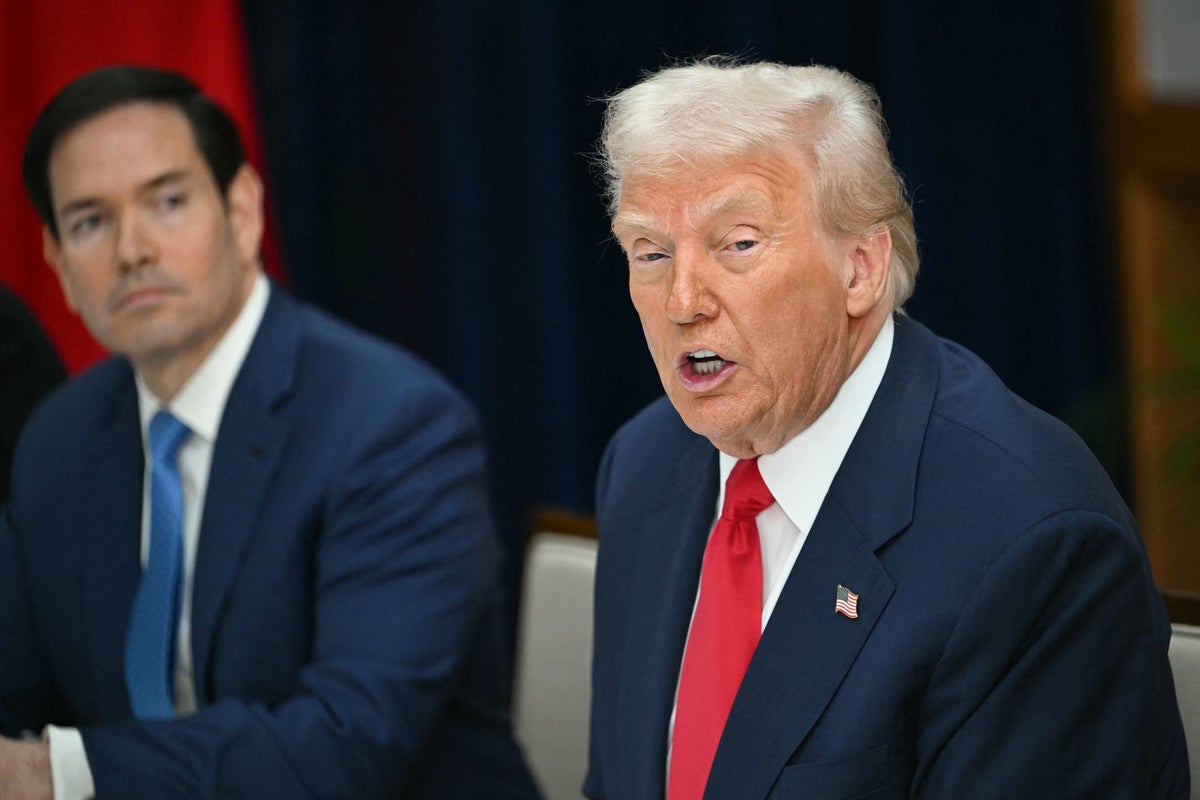World
Trump Designates European Antifa Groups as Foreign Terrorists

The administration of President Donald Trump has officially classified four European left-wing organizations as foreign terrorist groups. This decision, announced on November 20, 2023, follows a broader strategy to confront ideological adversaries, likening these organizations to the Islamic State in terms of perceived threat level.
The groups designated include Germany’s Antifa Ost, Italy’s International Revolutionary Front, and two Greek organizations: Armed Proletarian Justice and Revolutionary Class Self Defense. According to Marco Rubio, U.S. Secretary of State, these entities are accused of “conspiring to undermine the foundations of Western Civilization through their brutal attacks.”
This move aligns with Trump’s prior actions, including an executive order that identified the antifascist movement as a domestic terror organization. While there is no formal designation for domestic terrorist organizations under U.S. law, the classification of these European groups could lead to significant repercussions.
The labels of “Foreign Terrorist Organizations” and “Specially Designated Global Terrorists” could trigger financial sanctions and travel restrictions for individuals and entities linked to these organizations. Such actions may include freezing assets and restricting transactions involving U.S. citizens or companies with ties to the designated groups.
Critics have raised concerns about the implications of this designation. Sociologist Stanislav Vysotsky argues that the administration lacks credible evidence to support claims that these groups have direct connections to domestic antifascist movements. He emphasized that the conflation of militant antifascist activism with other forms of ideologically motivated violence risks severe mischaracterization of the movement.
The Trump administration’s strategy appears aimed at delegitimizing left-wing dissent while connecting Democratic opponents to perceived radicalism. White House Deputy Chief of Staff Stephen Miller expressed that identifying foreign ties among these groups is a valid step in the administration’s efforts.
In a roundtable discussion in September, Pam Bondi, Attorney General, highlighted a broader approach to counteracting groups accused of supporting terrorism. She stated, “It’s breaking down the organization brick by brick,” paralleling current tactics against cartels with those aimed at Antifa.
Antifa is not a singular organization but represents a decentralized network of individuals and groups united by a shared opposition to fascism. Over the past decade, this movement has gained attention, especially during protests that have at times turned violent.
Historically, the majority of organizations added to the foreign terrorist organizations list have ties to Islamic extremist groups, such as al-Qaeda and the Islamic State. The recent designation marks a significant shift, with the Trump administration planning the largest single-year increase to this list since its inception in 1997.
Supporters of the designation argue it is necessary for national security. Yet critics warn of the dangers of mislabeling and potential overreach in law enforcement’s response to left-wing activism. As political tensions continue to rise, the implications of these designations may resonate far beyond the immediate context, influencing how dissent is perceived and addressed in the United States and abroad.
-

 Health2 months ago
Health2 months agoNeurologist Warns Excessive Use of Supplements Can Harm Brain
-

 Health3 months ago
Health3 months agoFiona Phillips’ Husband Shares Heartfelt Update on Her Alzheimer’s Journey
-

 Science4 weeks ago
Science4 weeks agoBrian Cox Addresses Claims of Alien Probe in 3I/ATLAS Discovery
-

 Science4 weeks ago
Science4 weeks agoNASA Investigates Unusual Comet 3I/ATLAS; New Findings Emerge
-

 Science3 weeks ago
Science3 weeks agoScientists Examine 3I/ATLAS: Alien Artifact or Cosmic Oddity?
-

 Science3 weeks ago
Science3 weeks agoNASA Investigates Speedy Object 3I/ATLAS, Sparking Speculation
-

 Entertainment4 months ago
Entertainment4 months agoKerry Katona Discusses Future Baby Plans and Brian McFadden’s Wedding
-

 World2 months ago
World2 months agoCole Palmer’s Cryptic Message to Kobbie Mainoo Following Loan Talks
-

 Entertainment4 months ago
Entertainment4 months agoEmmerdale Faces Tension as Dylan and April’s Lives Hang in the Balance
-

 Science3 weeks ago
Science3 weeks agoNASA Scientists Explore Origins of 3I/ATLAS, a Fast-Moving Visitor
-

 Entertainment4 months ago
Entertainment4 months agoLove Island Star Toni Laite’s Mother Expresses Disappointment Over Coupling Decision
-

 Entertainment3 months ago
Entertainment3 months agoMajor Cast Changes at Coronation Street: Exits and Returns in 2025









